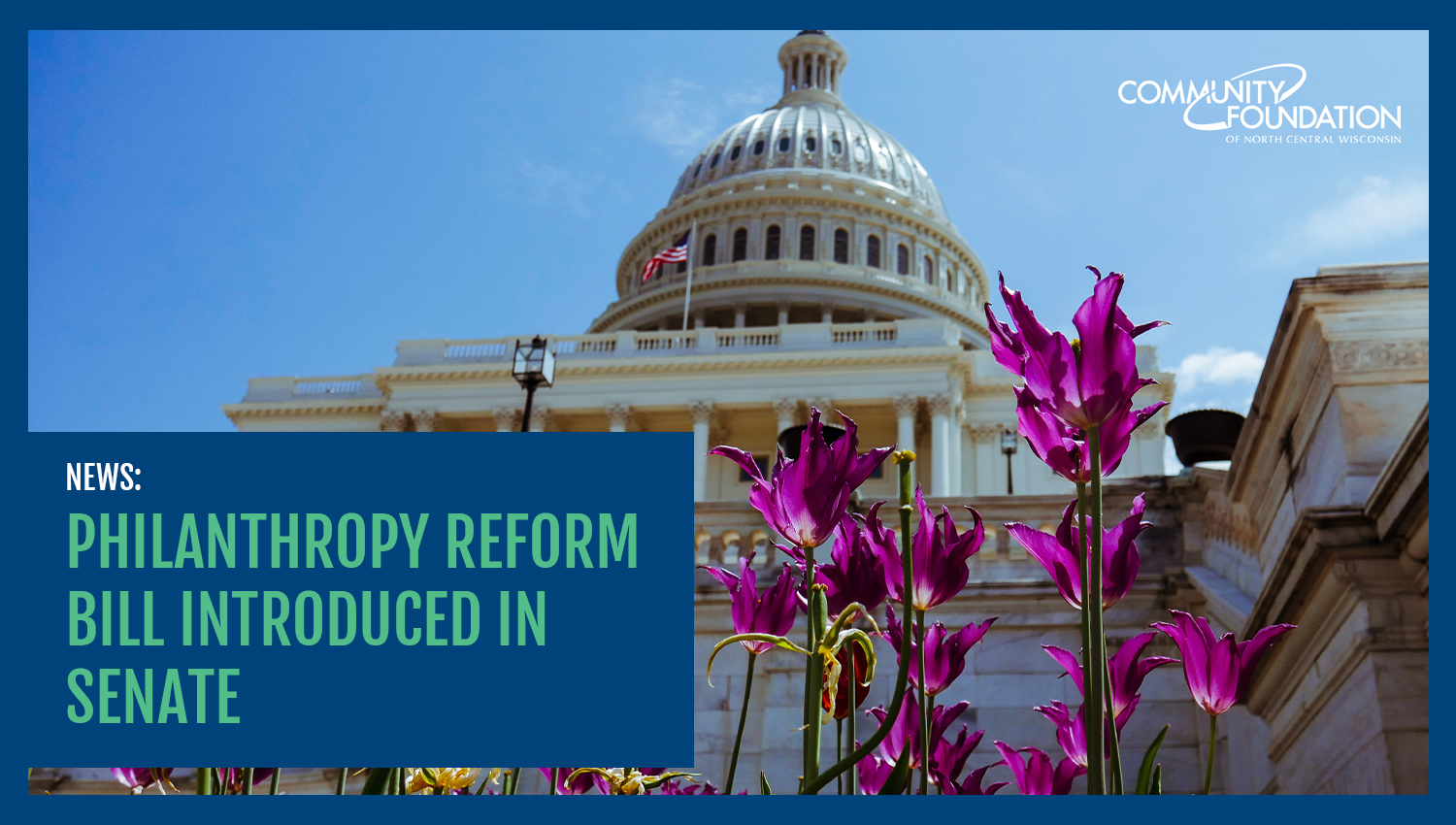
Recently, U.S. Senators Angus King (I-Maine) and Chuck Grassley (R-Iowa) introduced the Accelerating Charitable Efforts (ACE) Act, a bill that seeks to impose new legislative mandates on Donor Advised Funds (DAFs) and private foundations.

By: Tony Schields
President/CEO | Wisconsin Philanthropy Network
Guest Contributor
22 June 2021
Philanthropy Reform Bill Introduced in Senate
Our partners at the Wisconsin Philanthropy Network and the United Philanthropy Forum developed information on the Accelerating Charitable Efforts (ACE) Act concerning new legislative mandates for Donor Advised Funds and private foundations. Below is the information they provided.
Recently, U.S. Senators Angus King (I-Maine) and Chuck Grassley (R-Iowa) introduced the Accelerating Charitable Efforts (ACE) Act, a bill that seeks to impose new legislative mandates on Donor Advised Funds (DAFs) and private foundations. This legislation was born out of a proposal drafted by an external sector group, Initiative to Accelerate Giving, which had been shopping the proposal on Capitol Hill for months.
In its current form, the bill would:
-
Establish a 15-year DAF and a 50-year DAF:
- The ACE Act defines the 15-Year DAF, known as a “Qualified DAF,” as DAFs that impose a 15-year limitation on advisory privileges conferred upon any donor as measured from the contribution date. Contributions to “Qualified DAFs” must designate a charitable recipient to receive the remaining assets undistributed at the end of the 15-year time limit.
- If a “Qualified DAF” fails to pay out within 15 years, then the sponsoring organization must pay a penalty tax of 50% of the amount that has not been distributed.
- For 50-Year DAFs, known as “Non-Qualified DAFs,” contributions must be distributed within 50 years of the donation, or an excise tax is imposed on the sponsoring organization.
-
Create new rules for community foundation DAFs
- A donor can hold up to $1 million in DAF funds at any community foundation without being subject to payout rules. For amounts of more than $1 million at a community foundation DAF, a donor still can receive upfront income tax benefits if the DAF requires a 5% annual payout or if donations must be distributed within 15 years of contribution.
-
Create new rules for private foundations
- The ACE Act would prevent a foundation from counting salary paid to a substantial contributor to the foundation or such person’s family members as qualifying distributions.
- Private foundations would not be permitted to count distributions to DAFs as qualifying distributions for purposes of meeting their minimum distribution requirement.
- Private foundations would be required to report any distributions to DAFs on their Form 990-PF.
- The ACE Act would eliminate the 1.39% excise tax applicable to a private foundation in any year in which the foundation distributes at least 7% of its net assets.
-
Create new rules for public charities
- Under the ACE Act, a public charity may not treat distributions it receives from a sponsoring organization of DAFs as public support received from another public charity unless the distribution from the sponsoring organization is not sourced to a DAF.
The lead sponsors of the bill will now seek to engage other policymakers on Capitol Hill as potential co-sponsors. As that process plays out, the Forum will continue to inform Congressional offices about the importance of including the broader sector in conversations about reforms. The Forum has not yet taken a position on this bill.
The Community Foundation of North Central Wisconsin is continuing to monitor the progress of this bill, along with our colleagues on the state and national level, regarding how it will impact our donors.
More News
Impact Grants Update – April 2024
Impact Grants Update NEWS | April 23, 2024 Impact Grants Update NEWS | [...]
Impact Grants Update – 2023 Recap
Impact Grants - 2023 Recap NEWS | January 19, 2024 Impact Grants - 2023 [...]
Ribbon-Cutting Ceremony and Board Room Dedication, Nov. 14, 2023
The Community Foundation of North Central Wisconsin will join in a nationwide celebration, November 12-18, 2023, to recognize the [...]

